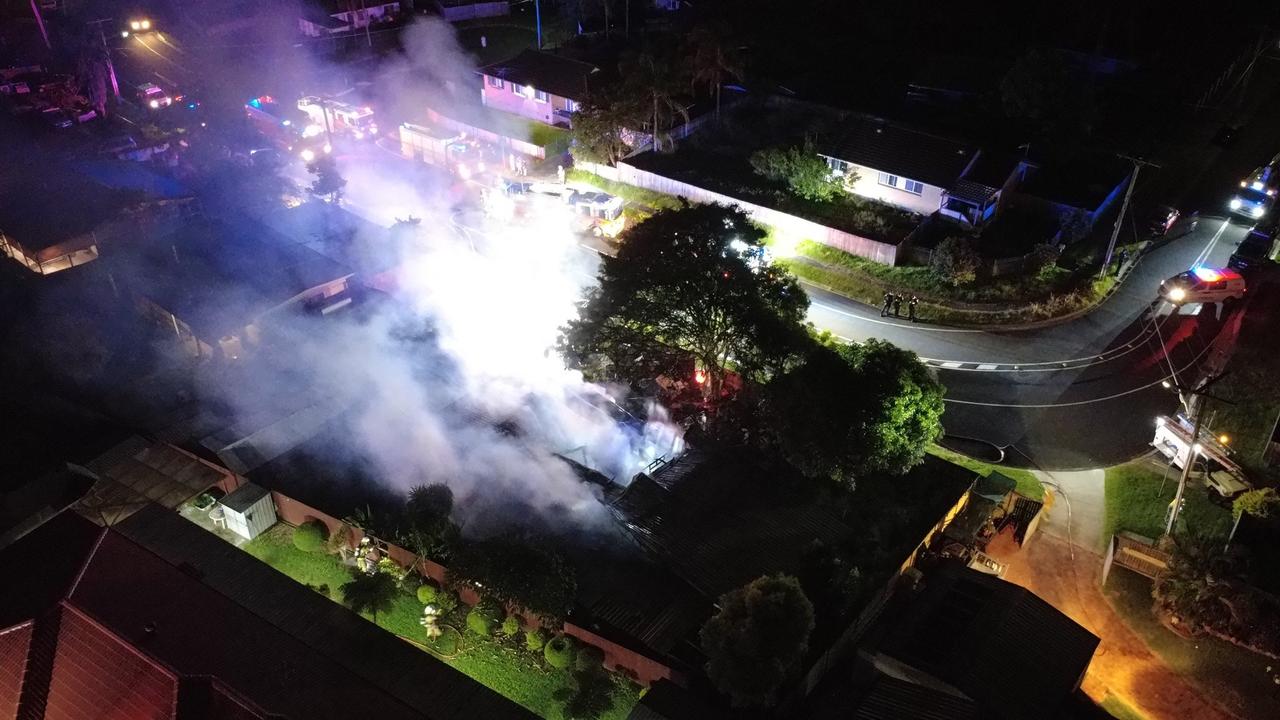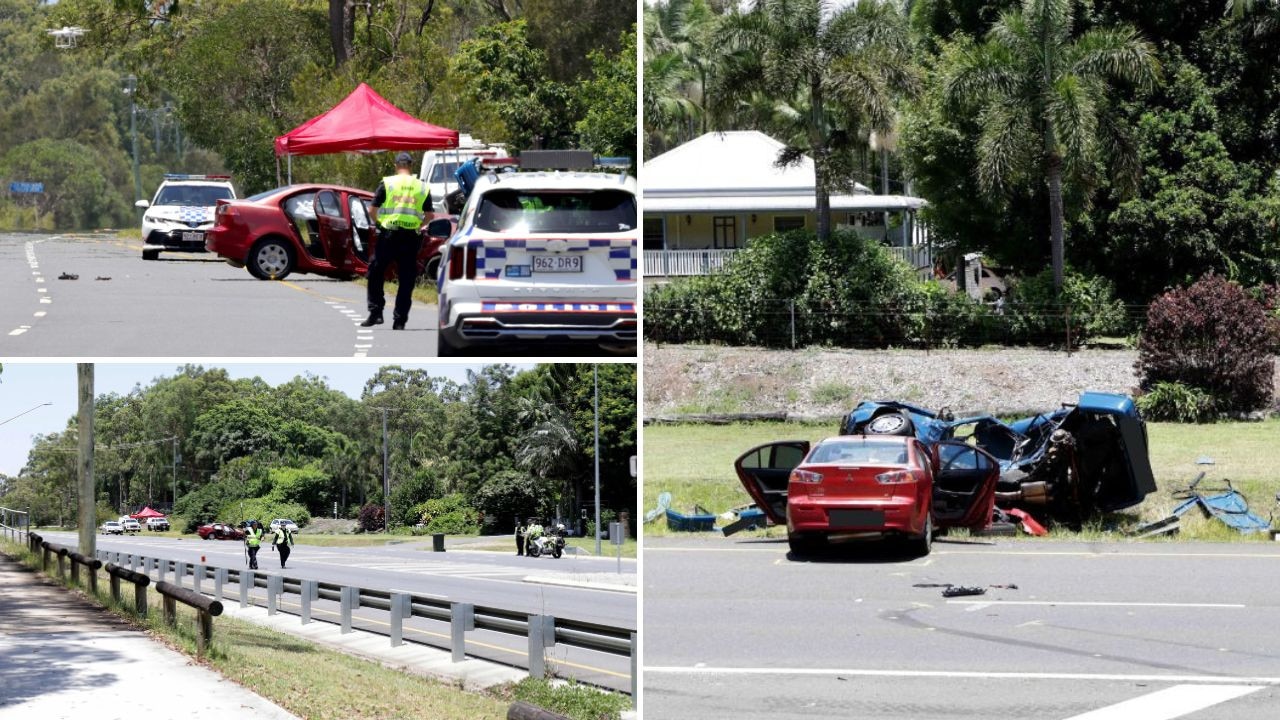Court details reveal CFMEU accused of intimidation on Cross River Rail
Federal court documents have revealed the CFMEU is accused of going to extreme lengths to influence members into voting for industrial action on the Cross River Rail project.
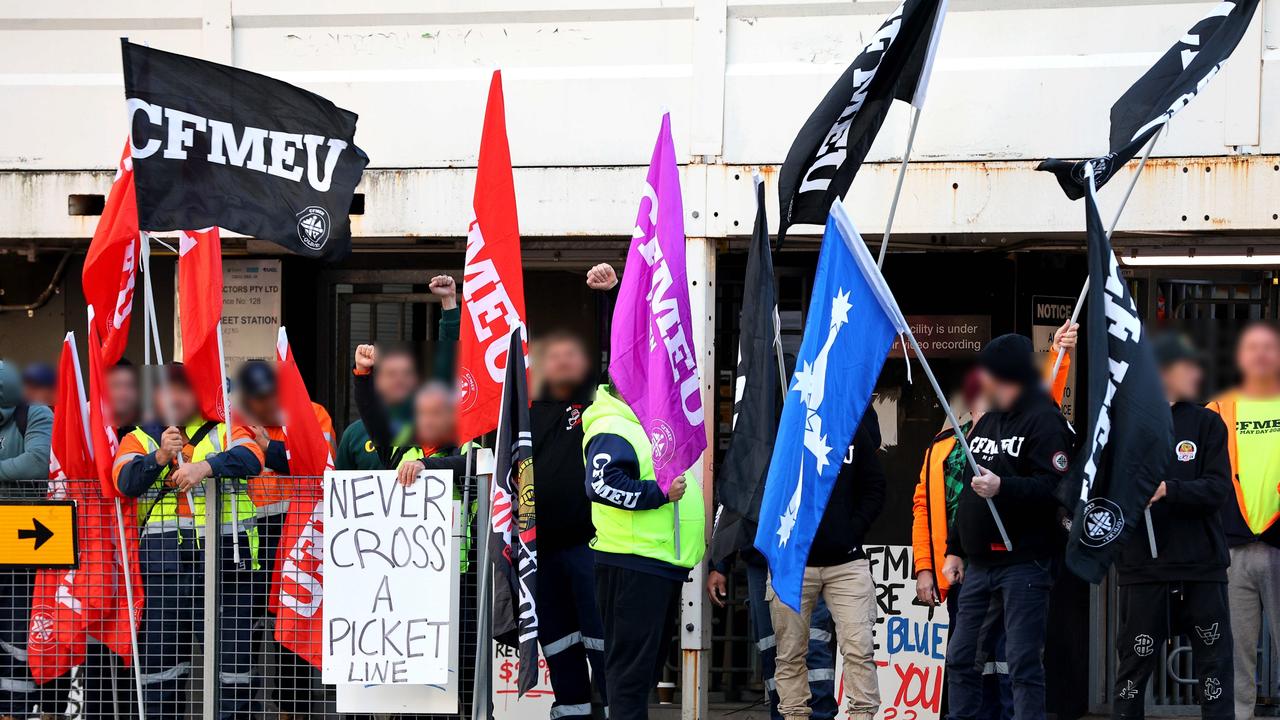
QLD News
Don't miss out on the headlines from QLD News. Followed categories will be added to My News.
The CFMEU is accused of bullying members to vote for industrial action on the Cross River Rail project with masked men allegedly blocking entrances, workers photographed if they crossed picket lines and a detractor branded a domestic violence offender on a sign.
Federal Court documents, obtained by The Courier-Mail after a five-month process lift the lid on the brutal stoush between the Construction Forestry and Mining Union and major Cross River Rail contractor, CPB amid tense enterprise bargaining negotiations.
The allegations include that some subcontractors felt they could not cross picket lines despite not being union members for fear of being “blackmailed” and their businesses crumbling, while the union was also accused of distributing “defamatory” placards of project bosses.
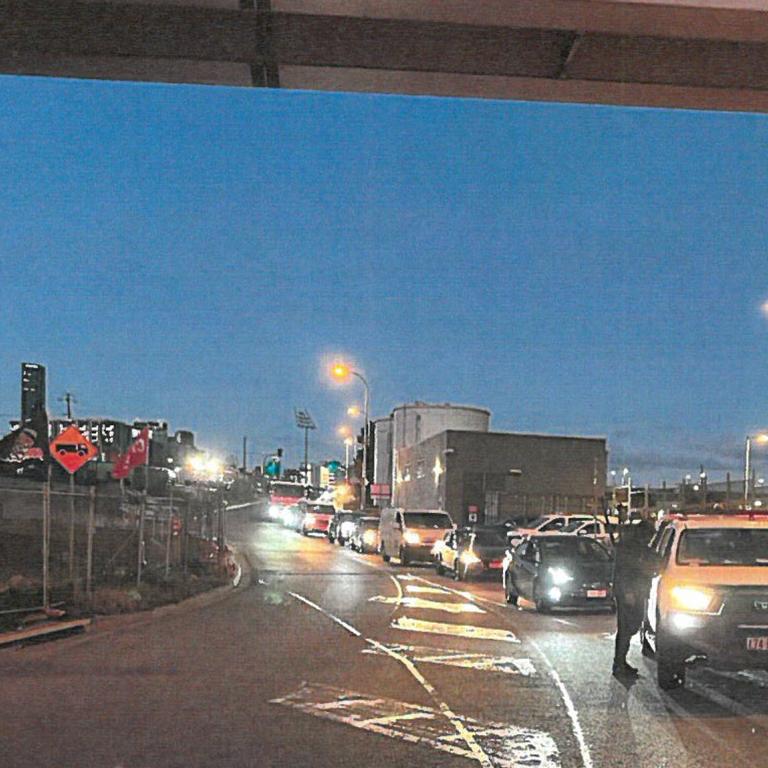
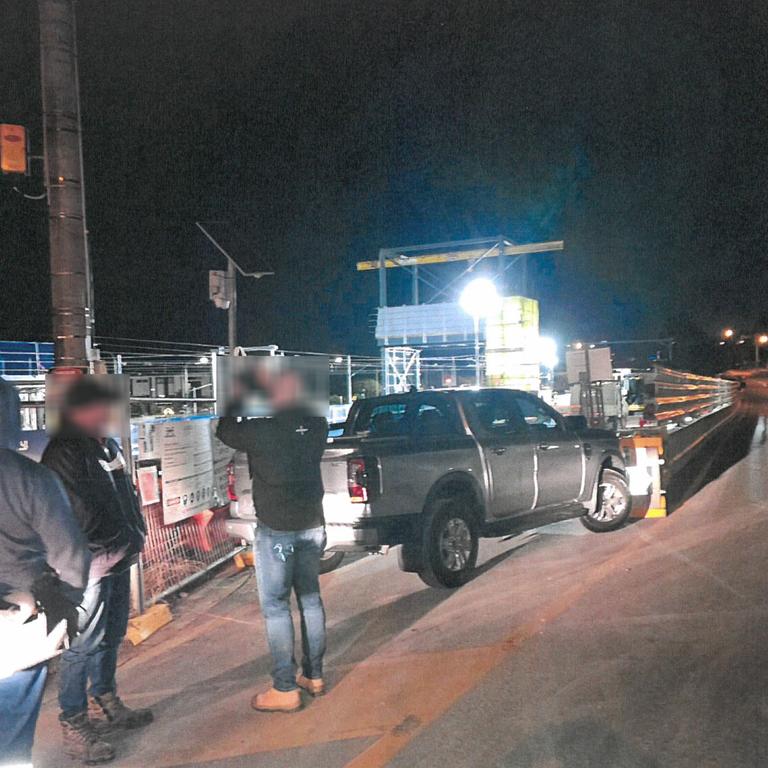
Statements provided to CPB’s lawyers when legal action against the CFMEU began last year reveal some union members – who did not want to be named for fear of reprisals – felt they were “coerced” and “intimidated” into voting for industrial action in what was by law supposed to be a secret ballot.
One worker said concerns were raised with union organisers during a heated meeting that some “cannot afford to take time off as everybodies (sic) financial position is different” – but the response from organisers “involved politics” and ended with “it is what it is”.
“It was blatant disregard for the Fair Work Commission’s terms for a secret ballot,” the worker wrote.
“They intimidated, coerced and totally tried influencing how the employees vote. Taking away our anonymity and any right to make our own decision even walking up to workers and telling them to take out their phones and vote YES.”
Another worker said a union organiser asked them if they were “going to be smart” about their choice and said staff were gathered at their break time with organisers looking “over our shoulders to see which way we were voting”.
“To me this was intimidating. I felt uncomfortable and made sure I voted in privacy,” they said.
According to the court filing, a number of workers claimed they were “coerced” – with one revealing it was suggested that voting did not need to be done straight away and people should have time to talk to their families as the decision could have a “huge impact”.
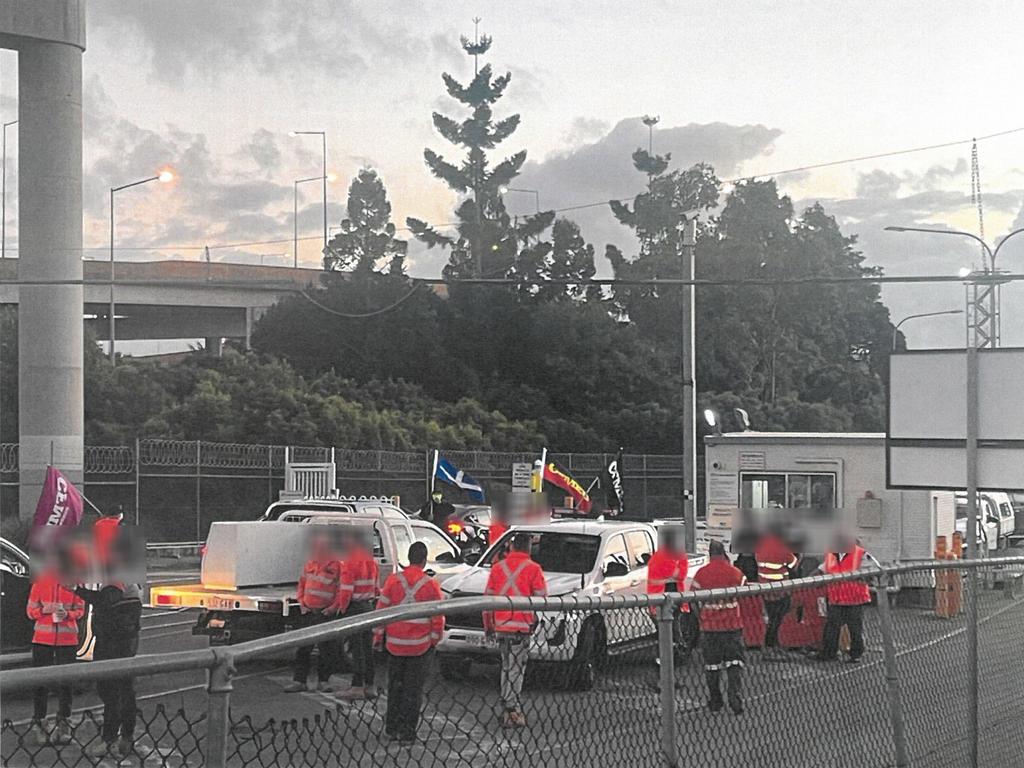
“I know myself and the majority of people in the room were made to feel pressured into voting YES (for industrial action),” they said.
A text message sent out to members, detailed on the court file, said: “Voting will be conducted at a meeting with your delegate. Pls DO NOT vote separately. UNITED WE STAND!”
CPB attempted to get a court injunction stopping the votes from being counted last April alleging breaches of the Fair Work Act – but the Federal Court ruled the statements from nameless workers were inadmissable as hearsay and the case had not been proven. The court also found while the text message was admissible, it was “consistent with providing information and advice and making a request, not a direction”.
The CFMEU argued the evidence did not establish that workers were intimidated in such a way that it influenced their vote.
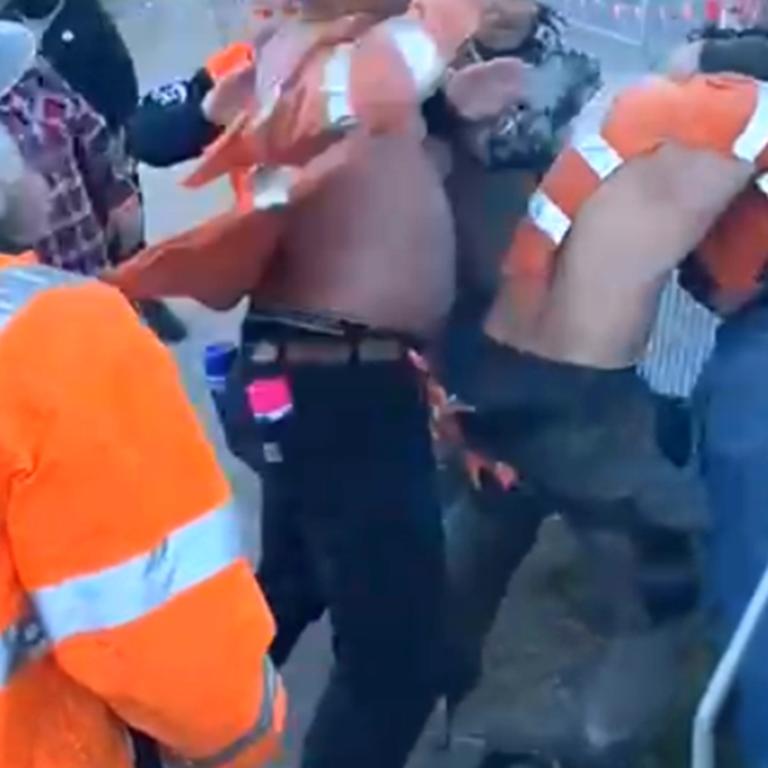
“... the evidence is that few if any people voted at the time of the conduct complained of,” the CFMEU’s submissions argued. “If persons resisted the idea of voting in the presence of the union, there is nothing to logically suggest that their vote, cast at a later time, would have been influenced by the conduct complained of”.
On April 21, the Fair Work Commission also dismissed the statements and allowed the ballots to be counted.
The next day, the CFMEU emailed CPB to notify the company of industrial action to start on April 30.
At 4.13am on April 30, a CPB human resources manager began receiving a flurry of text messages on Whats-App from site managers and supervisors on CRR worksites claiming gates had been chained and vehicles parked so workers could not access the sites.
The Dutton Park site manager, in a message at 4.51am, said he had been advised from a union organiser that “no one is passing the picket line and ‘it will kick off if they try’.”
Another at Mayne Yard said “Normanby gate is locked and blocked by vehicle. Members on the ground”.
In another message it was noted the union “missed” a gate at Dutton Park – and a supervisor asked if it was “worth sneaking in any subbies that want to work or could that escalate the situation”.
The response was: “I wouldn’t at the minute... that will provoke them to start entering site”.
According to the messages on the court file, police were called to sites including Mayne Yard but officers said “they have not enough manpower to deal with the amount of people there”.
The supervisors took photos and videos of the industrial action as it unfolded, with some wearing masks and there were allegations of a “human wall” being formed to ensure workers could not get in.
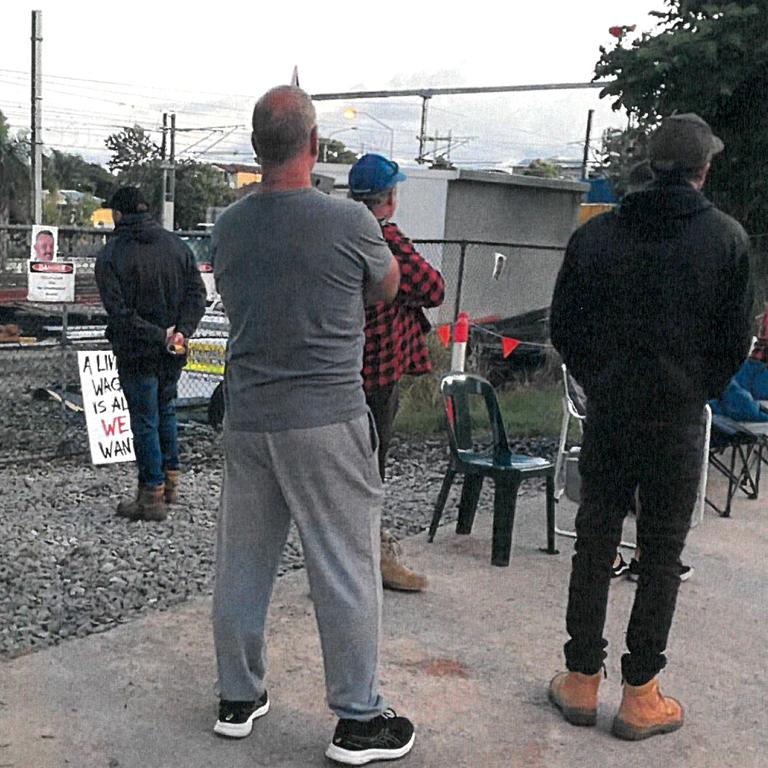
According to court documents, lawyers for five men employed on CRR projects were forced to write to the CFMEU on the same day demanding “defamatory” placards of the workers were taken down immediately.
The placards included one accusing a man of being “QLD’s most unwanted. Failed union organiser, convicted domestic violence offender” and another saying “I like contacting female workers more than half my age”. Another placard alleged a manager “can’t prioritise basics” and another “hates workers”.
On May 1, the Federal Court ordered that the CFMEU not physically obstruct or impede free movement of people and goods to CRR sites and not threaten or abuse anyone entering or leaving the sites.
The CFMEU denied the claims in court.
The case continues in the Federal Court as CPB – now joined by fellow subcontractor UGL – seek damages under the Fair Work Act
More Coverage
Originally published as Court details reveal CFMEU accused of intimidation on Cross River Rail





